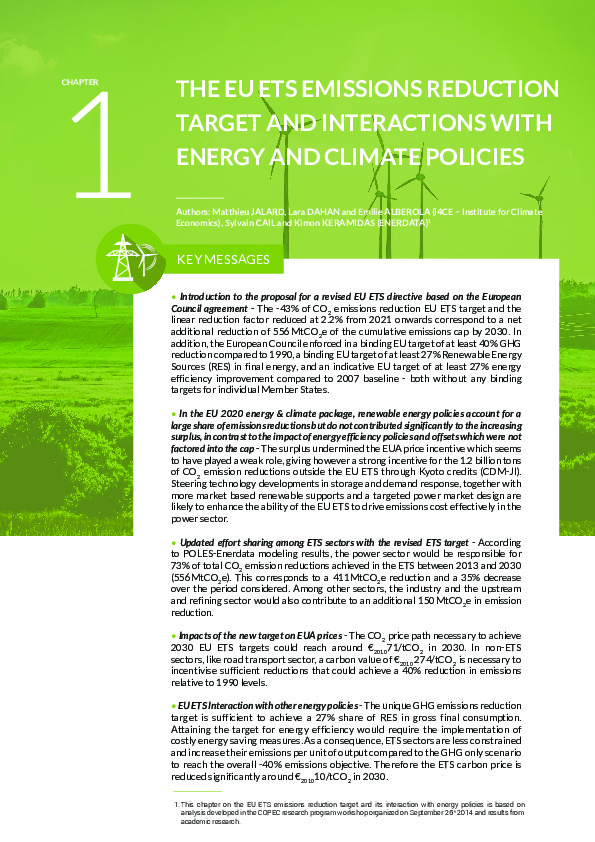COPEC Chapter 1: THE EU ETS EMISSIONS REDUCTION TARGET AND INTERACTIONS WITH ENERGY AND CLIMATE POLICIES
This Publication is an extract from the Coordination of EU Policies on Energy and CO2 (COPEC) report, produced jointly by I4CE – Institute for Climate Economics and Enerdata, and in collaboration with IFPen. The report provides new, factual, independent and quantified analysis on EU ETS operationality by 2030, to examine the necessary conditions to improve its environmental and economic effectiveness.
COPEC Chapter 1 on The EU ETS emissions reduction tagret and interactions with energy and climate policies;– provides a synthesis of the European Commission’s proposal on the 2030 Framework for climate and energy policies
– Provides an analysis on the extent energy policies that support Renewable Energy Sources (RES) and Energy Efficiency (EE) targets, which are complementary to the Greenhouse Gas Emissions (GHG) target have impacted the European Union Emissions Trading Scheme (EU ETS) and the consequences on the European allowances (EUA) surplus until 2030
– Presents two scenarios for the EU ETS and their potential impact on EUA prices, on additional investment costs and the effort sharing between EU ETS sectors leading to 2030
– Provides an overview of how three other emissions trading schemes in the world manage their GHG emission reduction target
